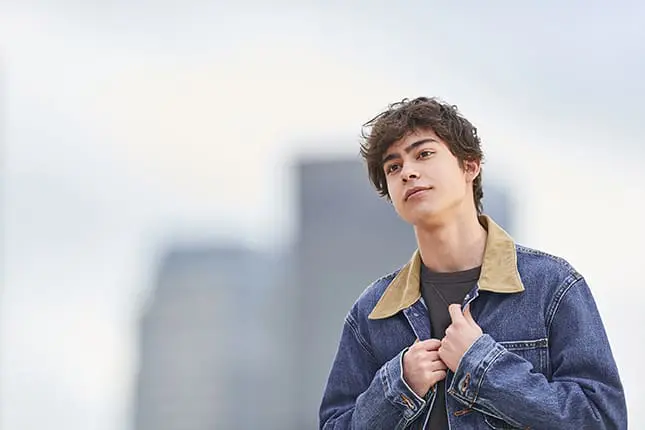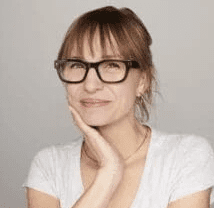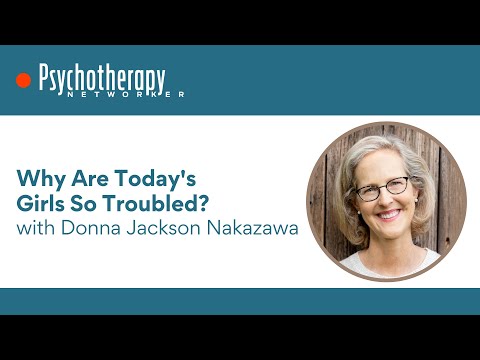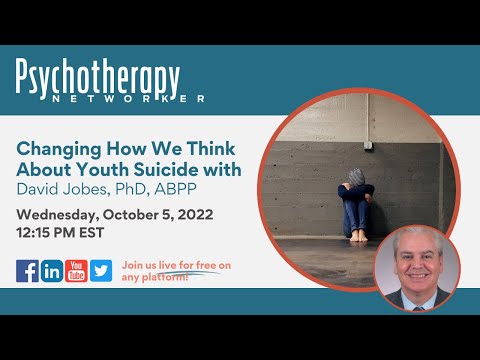In this issue of the magazine, as in the world, lots of adults are weighing in on youth mental health, making observations, diving into stats, exploring effective interventions—for good reason—but it’s important to hear from young people themselves, too. So we chatted with 17-year-old Zach Gottlieb, a high school junior, who’s concerned with many of the issues therapists are. Although his mom happens to be famed author and therapist Lori Gottlieb, a scroll through his Instagram videos reveals that he’s becoming a public figure in his own right, motivated to change the conversation about teen mental health by actually having conversations—ones teens don’t typically have with adults or even with each other.
In fact, his passion for talking with Gen Z’ers like himself about a range of emotional wellness issues led him to create “Talk with Zach” (talkwithzach.org), an online community that fosters open conversations about jealousy, friendship, coming out, addiction, college decisions, helicopter parents, social media, depression, healthy masculinity, academic stress, and a host of other important topics today’s teens struggle with. Recently, he talked to Ross Szabo, the CEO of the Human Power Project, about the importance of teaching “soft skills” that foster emotional wellness in schools—skills that he believes are just as important as rigorous academics. He also talked with Paulina Porizkova, a supermodel, about social media and our culture’s focus on appearances. But his favorite people to converse with, he told the Networker, are other teens just like him. As he puts it, “We can’t change what we don’t talk about.”

Livia Kent: Where does your interest in emotional wellness come from? Does it come from your mom, who’s a very well-known therapist, or do you feel like in another life you might’ve had the same interest?
Zach Gottlieb: It grew out my own awareness that the people around me weren’t having conversations about emotions that seemed authentic, vulnerable, or helpful for that matter. Emotional maturity is something I value, and I wanted to see more of it develop around me in a way that wasn’t stigmatized.
My generation doesn’t know how to deal with the things we’re facing, like relationship issues and increasing anxiety. So I became really passionate about emotional health, because, just like physical health, it dictates so much of our lives and our ability to function.
LK: It’s interesting to hear you say that about your generation, because I think other generations would say the same thing about theirs. Mine certainly wasn’t focused on emotional health, neither was my parents’. I feel like yours is talking about mental health more than any other.
Gottlieb: It’s true that my generation is starting to care more than the others, but we’re not fully there, and that’s exactly why I’m passionate about this, because we have an opportunity to change the culture for the better.
LK: Many therapists are trying to raise awareness about a youth mental health crisis. In your view, is this an overreaction, or do you feel like your generation is actually in crisis?
Gottlieb: It’s not an overreaction. I know every generation says they’re different from the previous one, but ours is truly different. First of all, we have social media. In the past, you might’ve experienced social anxiety, but it’d only show up when you were out with friends or out at school. Now, you can be chilling in your bedroom and pull up Instagram, and it’ll hit you. Not just that, there’s the FOMO of seeing people going out without you, and the constant fear of exclusion and not measuring up.
Even though we know that social media is edited and curated, there’s a difference between knowing something and really taking it in. We may see someone posting a picture and think, “Oh yeah, this is just a curated picture of them at a party,” but we still feel that we’re missing out. It’s very toxic.
Social media also intensifies pressure around already stressful things, like getting into college, which feels nearly impossible these days. In fact, I wrote a piece for The Atlantic about the college acceptance videos people are posting now, where a teenager logs into a college portal, and oh my god, they find out they got in. They’re crying and laughing and hyperventilating. It makes for an exciting video, but it presents a false reality that everyone gets into the schools they want, when these schools might have less than a 10 percent acceptance rate.
LK: It sounds like you’re saying social media amplifies stressors in an already stressful world. And yet, I know you have an active social media presence.
Gottlieb: Oh yeah, of course I’m on social media. You have to be. I enjoy talking to people on Snapchat or Instagram. And TikTok is fun, which is why it’s so easy to get sucked in. People are like, “Why are you on it if it’s so unhealthy?” Well, it’s designed to be addictive, but it’s a part of life and I’m making conscious attempts to use it in a healthy way.
LK: How do we emphasize healthy use in a way that’s going to click with people your age?
Gottlieb: You can’t say, “Don’t ever open Snapchat again,” because people will be like, “I want to talk to my best friend on there. We have a lot of fun.” But if you’re like, “Why don’t you only open Snapchat to talk to your best friend and not go scrolling through stories for a long time,” that’s a healthy boundary. Or you could suggest, “Hey, limit yourself on Instagram to a couple of minutes. Only check up on your friends. Don’t go scrolling through. Only respond to the people you want to respond to and who are healthy for you.” So I’d say focus on setting boundaries, not completely cutting it out of your life.
LK: Are the young people you talk to wanting to set healthy boundaries on social media? Or is this something you’re talking about because you’re in the know?
Gottlieb: A little of both. They’re not always saying it explicitly, but I know a lot of people who have set timers on social media or have been going on little cleanses. They’re not saying, “Here are my rules.” They’re just kind of like, “Yeah, I’m trying to get off it more because it feels better to me.” Personally, I turn on Do Not Disturb for most of the day because I don’t want my phone going off when I’m working on something.
LK: What else contributes to the stress you feel?
Gottlieb: The world feels like such a scary place now because we have school shootings happening day after day after day. It’s a constant subconscious fear. I feel like a lot of adults don’t get that. We may not be talking about it, but we’re constantly feeling it.
LK: So what’s one thing adults can do to help kids talk about it more?
Gottlieb: You need to create a space where we feel comfortable coming to you without judgment, without repercussions. And we can’t be nagged into it. Let us initiate. Then just talk with us. You have knowledge, you have wisdom. Use it.
I think parents worry about telling their kids about times when they’ve screwed up, like, “Oh yeah, I’m not telling my kid that I got shit-faced in college.” I say tell them, because it’s a great learning tool, and it’ll feel like you’re talking to someone who understands you. We’re not looking for people who are perfect. We’re looking for people who are human, who’ve messed up but learned from it.
LK: You talk about this being a really scary world for kids. I’d say it’s scary for parents, too. That’s maybe why so many of us, in an attempt to keep our kids safe, risk becoming overprotective parents. From your point of view, how do we walk the line between being worried and helpful?
Gottlieb: You have to understand that sometimes it’s good to let your kids make mistakes and learn from them. I’d say if your kid wants to go to a party, don’t tell them not to go. Tell them what to be careful of. Tell them, “Hey, you don’t have a lot of tolerance, so be very careful with alcohol. Don’t drink anything that came from something you didn’t open because it could be spiked with something. Talk to them about drugs. Those could be spiked too.”
Same with the internet. You’re not going to stop your kid from using it. Just make sure they’re doing it responsibly. It starts with education: “Here’s why you don’t go to sketchy websites or post sexually explicit pictures, or anything you wouldn’t want an employer seeing, because those things are there forever.”
LK: What are you hopeful about? Talk to me about that.
Gottlieb: Gen Z is the first generation to be having these conversations about emotional health, and the fact that we’re having them is pretty remarkable. The more we open up, the more the culture is going to change. I think future generations will be even more emotionally fluent.
LK: What does your ideal world look like in terms of emotional health?
Gottlieb: It would be a world where people feel comfortable being vulnerable and having deep conversations. They’d know how to navigate relationships and stress in a mature way that doesn’t hurt other people. Emotional maturity has to do with being a good communicator and communicating your wants and needs both to other people and to yourself. Being honest with ourselves often means saying, “I need to work on this. I need to get whatever help and support I need.”
PN: What do you think therapists working with teens should keep in mind?
Gottlieb: I’m not in therapy, and my page focuses on general teen wellness, not therapy. But I’d say that any therapist should make sure they’re relatable and that they’re creating a safe space where teens don’t feel judged. I hear a lot of young people say they’re hesitant to share things because they feel like they’ll be looked at in a certain way. A lot of the time we just want a place to vent and share, and just listening to us can change our whole dynamic.
LK: I find that so interesting, because your generation is known for how much you share, or overshare as it were.
Gottlieb: I mean, we share all the time on social media, but it’s not real. We want a place where we can be ourselves.
LK: Would you want people to be more vulnerable and authentic in their sharing on social media?
Gottlieb: To an extent, yes. But I also don’t think it’s healthy to be posting every high and low of your life. I think it’s a lot more realistic for us to start realizing that social media isn’t reality. Apps like BeReal try to get at this. But at the same time, they simply create more pressure to always be spontaneously doing interesting post-worthy things.
LK: Wait, I don’t know what the BeReal app is.
Gottlieb: It’s this app where every day you get a notification, and you have to take a picture with the front and back camera—whatever you’re doing, however you’re looking—and it shows how soon after you took the picture after getting the notification. The point of it is to give you real snapshots. But people are like, “Oh my God, I wish my BeReal would go off right now!”
LK: If you were to name the number one issue that people your age want to chat with you about, what rises to the top?
Gottlieb: Definitely relationships. Since we’re not necessarily taught how to have them, they’re really difficult to navigate.
LK: Are you talking romantic relationships or friendship relationships?
Gottlieb: Oh, both. I think they’re similar because they both require good communication, honesty, and trust. But the advice we get from friends on how to handle relationship issues is often full of bad practices. The questions I get from teens on Talk with Zach are like, “How do I deal with this? What does a healthy relationship even look like?” There just aren’t many good models that we see.
But I want to reiterate that we can change this for the better. My motto is, “We can’t change what we don’t talk about.” That’s what I’m trying to do at Talk with Zach. I hope our generation will shift the way we think and talk about emotional health.
Livia Kent
Livia Kent, MFA, is the editor in chief of Psychotherapy Networker. She worked for 10 years with Rich Simon as managing editor of Psychotherapy Networker, and has collaborated with some of the most influential names in the mental health field on stories that have become widely read articles and bestselling books. She taught writing at American University as well as for various programs around the country. As a bibliotherapist, she’s facilitated therapy groups in Washington, DC-area schools and in the DC prison system. In 2020, she was named one of Folio Magazine’s Top Women in Media “Change-Makers.” She’s the recipient of Roux Magazine‘s Editor’s Choice Award, The Ledge Magazine‘s National Fiction Award, and American University’s Myra Sklarew Award for Original Novel.













